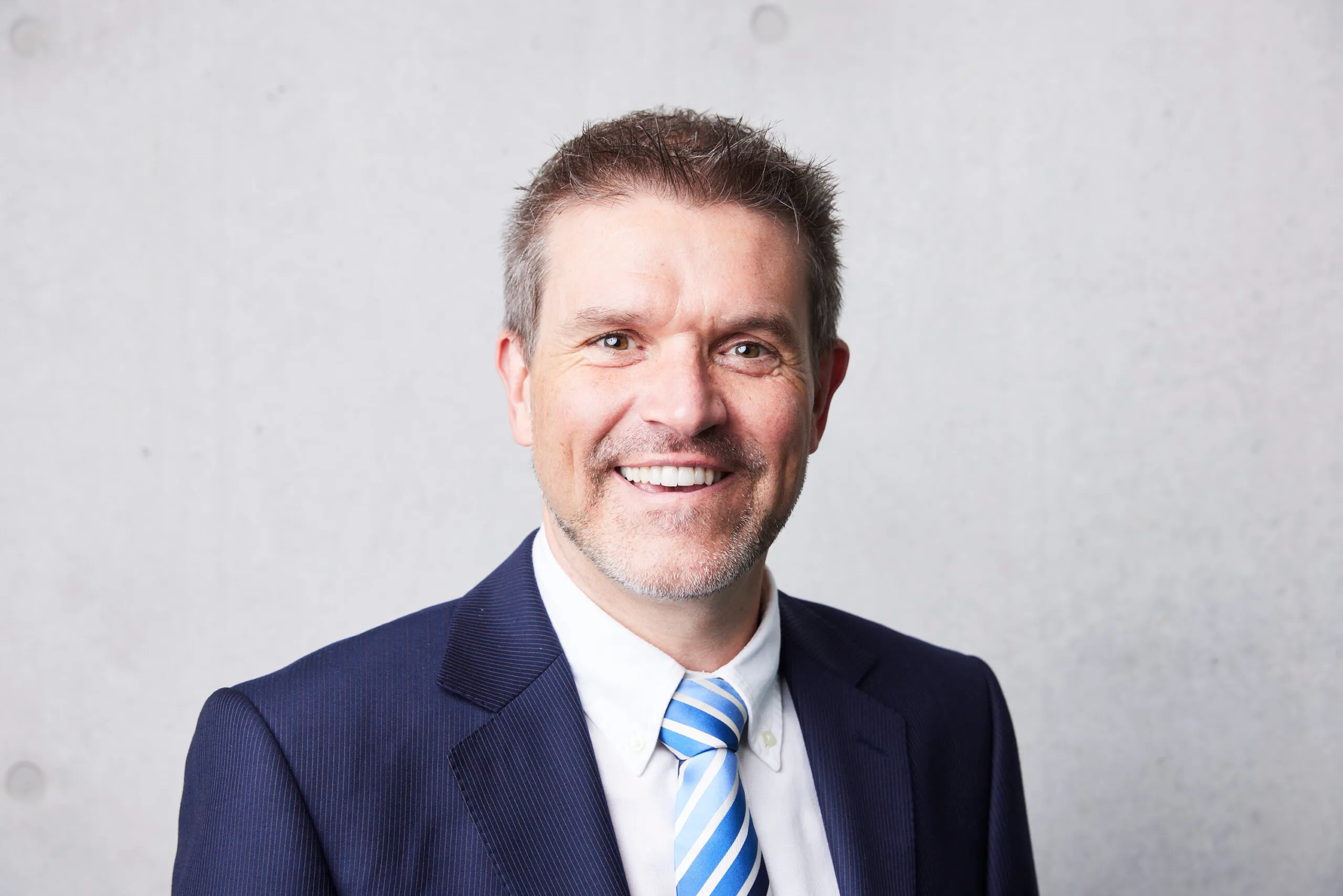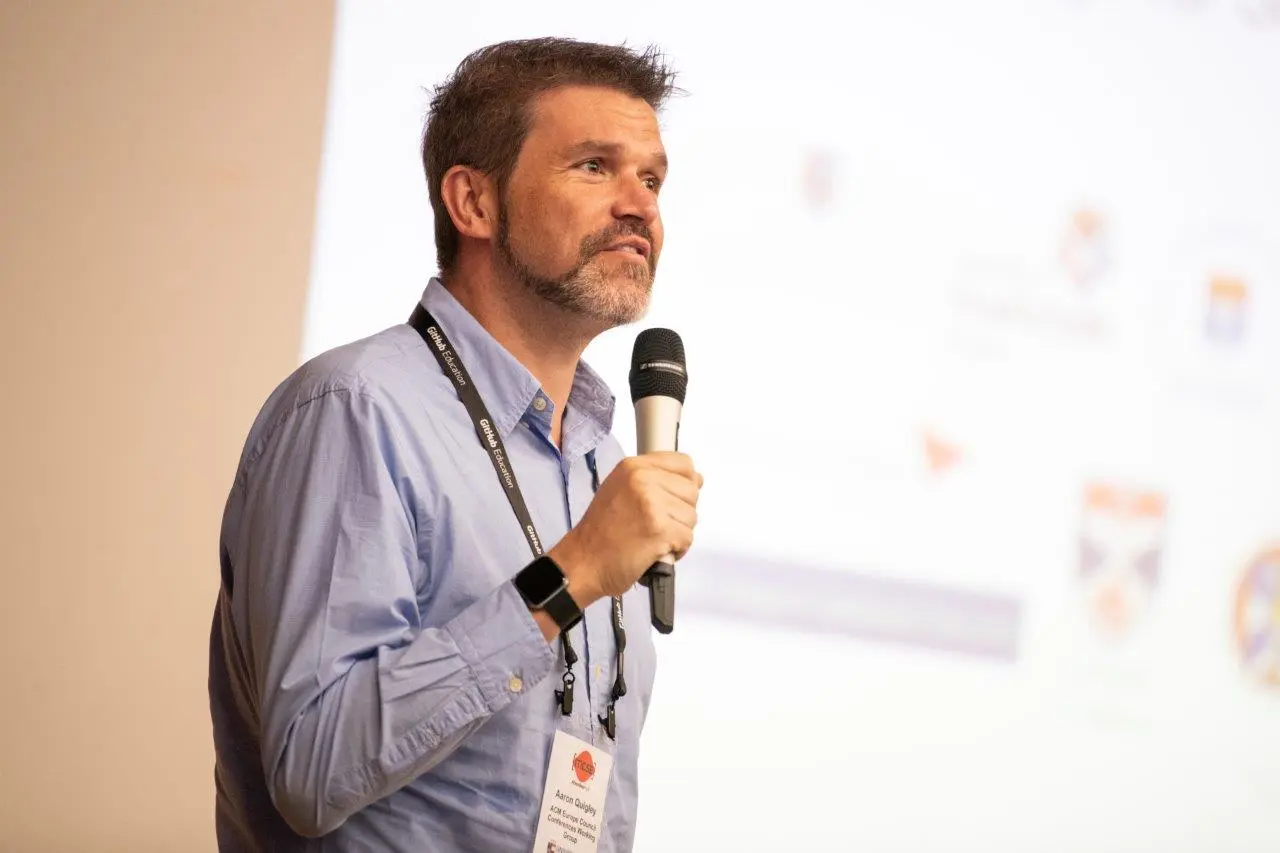
Welcome Professor Aaron Quigley, the new Deputy Director and Science Director of CSIRO's Data61.
Here, the newest member of the Data61 leadership team discusses how he got into tech, his areas of specialisation, career highlights, and favourite piece of advice.
Congratulations on the new role! What attracted you to this opportunity at CSIRO’s Data61?
I was attracted to the opportunity to help create impact at scale while addressing key research challenges for the future of Australia.
Part of the attraction was the opportunity to work on problems which are larger than those a computer scientist alone might tackle.
The path from research output to impact is not a straight line and I’m looking forward to helping chart new pathways to impact for everyone across Data61.
What’s your professional background and areas that you specialise in?
I’m a computer scientist to my core.
Having first studied in Trinity College Dublin in Ireland to completing my PhD here in the University of Newcastle, I’ve been involved in many aspects of computer science from algorithm design to ad-hoc networking or visualisation to the use of AI methods to help design antenna.
However, over the course of my career I’ve moved solidly into human computer interaction, or what some call human centred computing. I’m fascinated by how we assist, augment and enhance the human to magnify their physical and cognitive capabilities to achieve more.
What are the areas of opportunity for Data61 you would like to explore in your new position?
Humans and machines are a powerful force where advances in analytics and engineering can effect real change in the world. Data61 has great capacity internally to make changes on the world.
However, it’s our position at the apex of digital research within CSIRO which can magnify what we aim to achieve here. Our work is embedded in a wider context and questions from our stakeholders can drive the question we pursue and open up new avenues for our thinking.

What made you want to pursue a career in tech?
I was very curious about computers from an early age. When my brothers got a home computer to play games, I was the one who spent my time learning to program them to do new things.
What always appealed to me is the ability for us to convert our ideas and imagination into solutions with computers which no other branch of science or technology can achieve.
We invent computational tools, methods, instruments and techniques which can then be used by millions to solve problems around the world. The line from human thought into powerful computation is a compelling one.
Can you share an example of a research or engineering project that you’ve worked on that you’re most proud of, and that has achieved positive impact? What was the biggest lesson you took away from the experience?
The TRIL Centre (Technology Research for Independent Living) was an Intel/IDA funded project. As principal investigator on the technology platform team, we grew the team, released the BioMOBIUS research platform to the research community, directed the team in the development and deployment of technology into homes to support trials by the three clinical strands.
One of the pieces of work I was involved with was the objective real-time assessment of walking and turning in elderly adults which was accepted at the 31st Annual International Conference of the IEEE Engineering in Medicine and Biology Society (EMBC’09) in Minneapolis, Minnesota. It showed that automated real-time assessment of a manual health assessment technique was possible.
A range of the team's members have explored many other technology, clinical and validation studies. This paper formed the basis for a health technology spinout that has since been acquired. This technology is now in use in hundreds of locations around the world.I learnt three important lessons from this experience. First, be humble, as your piece of research is likely to be only a small part of what will be a much bigger solution. Second, patience, the research you work on today will need the energy and work of many others to effect change. Finally, build teams, you cannot know everything so draw the skills you need together and work as a team to solve bigger problems.
Is there a myth about your area of science that you want to bust?
Human attention is a very precious resource. It’s a myth that your interface will have the full attention of the user, you will have partial attention.
Do you have a motto or a piece of advice that you can share which defines the way you operate in your working life?
It's amazing what you can accomplish when you do not care who gets the credit
